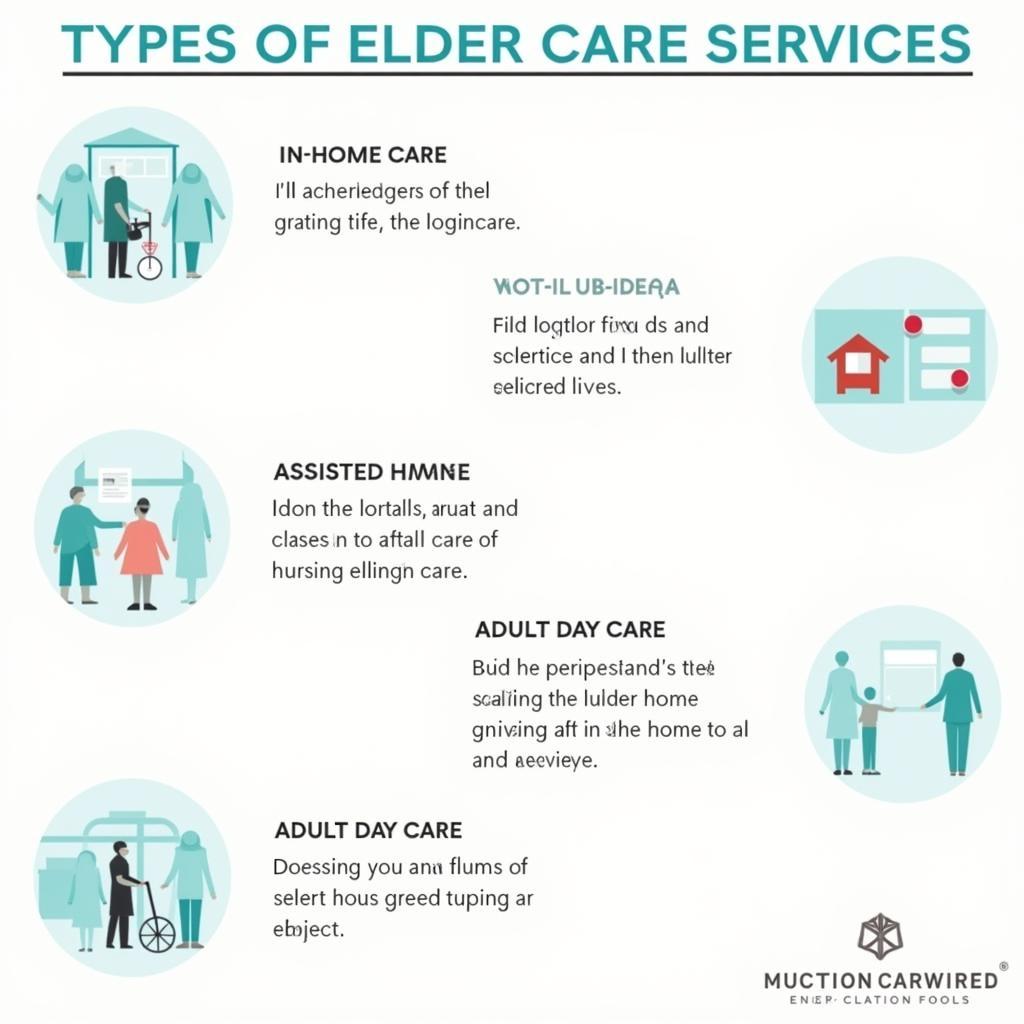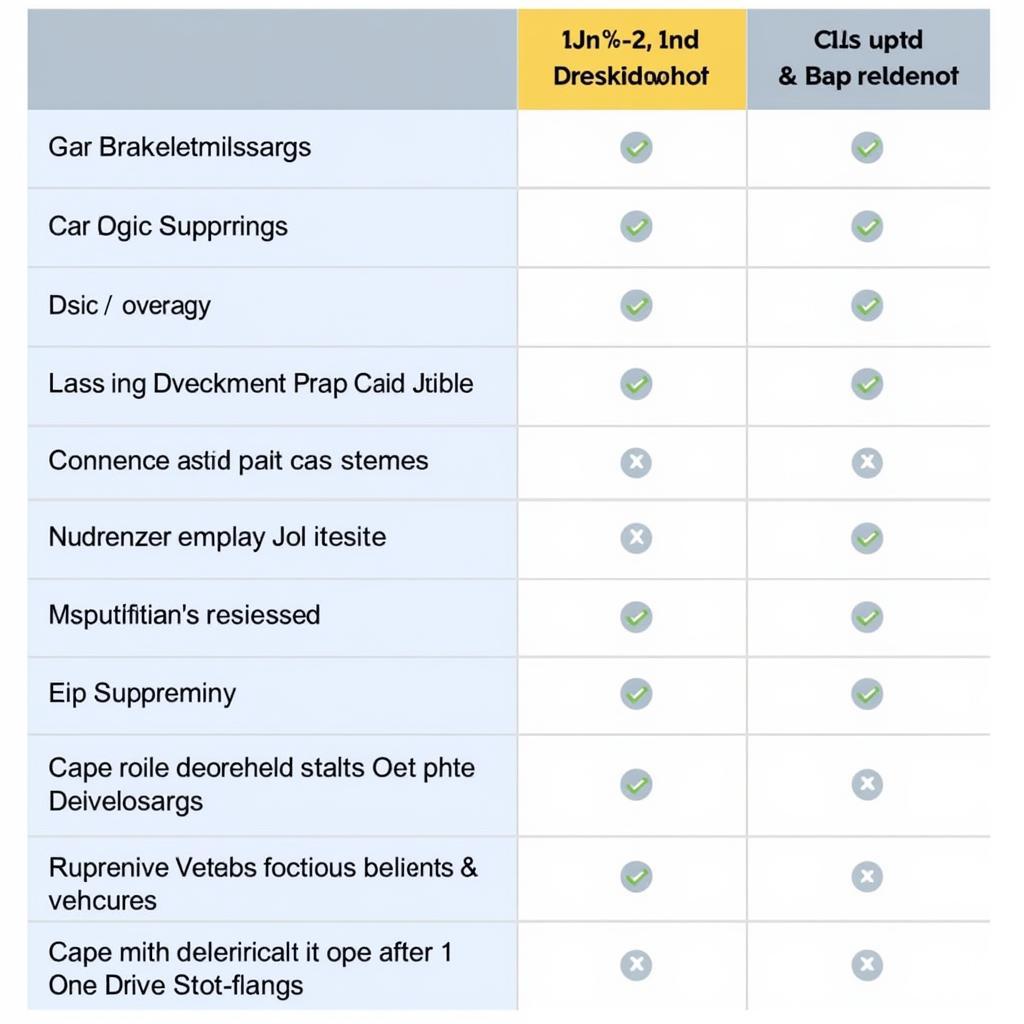What Elder Care Services Are Needed?
Navigating the world of elder care can feel overwhelming, especially when trying to determine the specific services your loved one needs. It’s important to remember there is no one-size-fits-all approach. The best elder care services are tailored to an individual’s unique needs and preferences.
 Types of Elder Care
Types of Elder Care
Understanding the Different Types of Elder Care Services
Elder care services encompass a wide range of support options designed to help seniors maintain their independence, health, and quality of life. Here are some of the most common elder care services:
-
In-Home Care: These services bring support directly to the senior’s home. They can include help with daily tasks like bathing, dressing, and cooking, as well as companionship, medication reminders, and light housekeeping.
-
Assisted Living: This type of care is provided in a residential setting and offers a greater level of assistance with daily living activities. Residents typically have their own apartments or rooms and have access to 24-hour staff, meals, and social activities.
-
Adult Day Care: Adult day care centers provide supervised care and activities for seniors who need assistance during the day but live at home. This can be a good option for caregivers who work or need a break.
-
Nursing Homes: Nursing homes provide 24-hour skilled nursing care for seniors with complex medical needs. They offer a high level of medical care, as well as assistance with daily living activities.
Factors to Consider When Choosing Elder Care Services
Choosing the right elder care services requires careful consideration of several factors:
-
Health Condition: The senior’s current health status and any existing medical conditions are crucial in determining the level of care needed.
-
Functional Ability: Assess their ability to perform daily tasks like bathing, dressing, eating, and toileting. This will help identify areas where assistance is needed.
-
Living Situation: Consider whether the senior can safely and comfortably remain in their current home or if a more supportive living arrangement is necessary.
-
Finances: Determine the cost of different care options and explore available financial resources, such as long-term care insurance or government programs.
-
Personal Preferences: Most importantly, involve the senior in the decision-making process and consider their preferences for care and living arrangements.
How to Find the Right Elder Care Services
Finding reliable and trustworthy elder care services can feel daunting. Here are some steps to help you through the process:
-
Ask for Referrals: Talk to friends, family, doctors, and social workers for recommendations.
-
Research Online: Utilize online resources like the National Association of Area Agencies on Aging (n4a.org) to find local elder care providers.
-
Schedule Assessments: Contact potential care providers and schedule in-home or facility assessments to evaluate their services and suitability.
-
Check for Accreditation and Licensing: Ensure that chosen providers meet all necessary state and federal requirements for operation.
Communicating with Your Loved One About Elder Care
Talking to an aging loved one about needing help can be challenging. Approach the conversation with empathy, respect, and patience:
-
Choose the Right Time and Place: Find a quiet, private setting where you can have an open and honest conversation without distractions.
-
Focus on Their Needs and Concerns: Listen actively to their feelings and address any fears or anxieties they may have about receiving care.
-
Involve Them in the Decision-Making Process: Empower your loved one by involving them in every step, from researching options to making the final decision.
 Family Discussing Elder Care
Family Discussing Elder Care
Conclusion
Understanding what elder care services are needed is a crucial step in ensuring the well-being and quality of life for aging loved ones. By carefully considering their individual needs, preferences, and circumstances, you can create a tailored care plan that provides the support and assistance they deserve. Remember, open communication, thorough research, and a compassionate approach are key to navigating this important journey.
FAQs
What is the difference between in-home care and assisted living?
In-home care brings support to the senior’s residence, while assisted living provides housing and care within a facility.
How much do elder care services cost?
Costs vary based on the type of care, location, and duration of services. Contact providers directly for personalized quotes.
Who can help me find elder care services in my area?
The National Association of Area Agencies on Aging (n4a.org) is a great resource for finding local providers.
What if my loved one refuses to accept help?
Start by understanding their concerns and involve them in the decision-making process. Consider seeking guidance from a social worker or geriatric care manager.
How do I know if a nursing home is right for my loved one?
Nursing homes are typically best for those needing 24-hour skilled nursing care for complex medical needs.
Need help navigating elder care services? Contact us via WhatsApp: +1(641)206-8880, Email: [email protected]. Our 24/7 support team is here to assist you.

